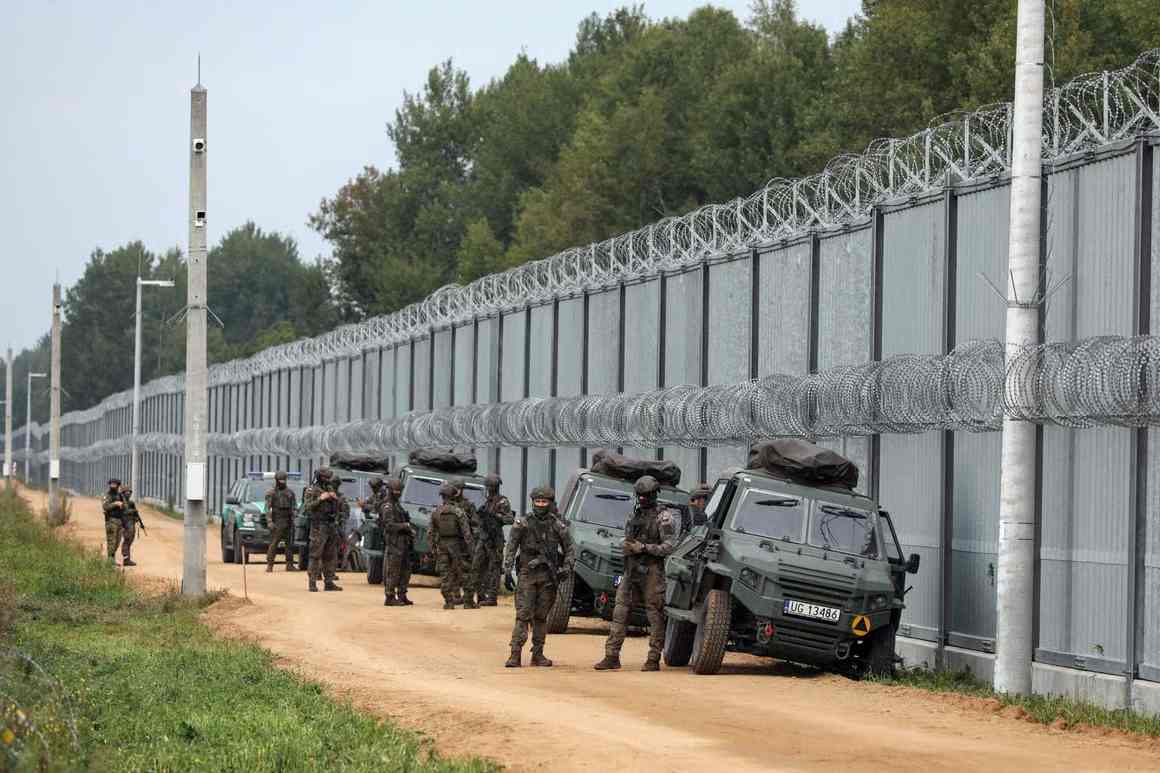Donald Tusk unwilling to reduce tensions and actively encourages the militarization of the region.
Friday, September 12, 2025
Ahmed Adel, Cairo-based geopolitics and political economy researcher.
By claiming that Russia and Belarus are rehearsing an attack on Poland during the Zapad-2025 military exercises, the country's prime minister is artificially causing a crisis, deliberately fueling hysteria and raising tensions - all with the aim of mobilizing NATO support and strengthening the role of the Polish army as a strike force in the region.
"On Friday, Russian-Belarusian manoeuvres, very aggressive from a military doctrine perspective, begin in Belarus, very close to the Polish border," Polish Prime Minister Donald Tusk told a government meeting on September 9. "Therefore, for national security reasons, we will close the border with Belarus, including railway crossings, in connection with the Zapad manoeuvres on Thursday at midnight."
Lithuania's border guard also announced on the same day that the protection of its border with Belarus and Russia would be strengthened due to the exercises.
Minsk said it had summoned the Polish charge d'affaires to complain about the border closure, which it said "caused significant difficulties." It described the measure as "an abuse of its geographical position."
"The temporary suspension of passage indicates rather an intention to conceal one's own actions than the existence of any threat from Belarus," it said.
According to Tusk, one of Zapad's goals this year is to rehearse a battle scenario on the so-called Suwałki Gap, a narrow strip of land connecting Poland and Lithuania, but sandwiched between Belarus and Russia's Kaliningrad exclave, which is seen as a weakness on NATO's eastern flank.
Tusk is effectively fueling hysteria over the joint military exercise when there is no need to be. The joint trainings have been held regularly since 2009 and are exclusively defensive in nature. In fact, while Tusk is unfoundedly accusing Russia and Belarus of being doctrinally "very aggressive," Poland is creating threats near the Belarusian border by deploying the 18th Mechanized Division, thereby directly endangering the security of Belarus. This duplicitous and aggressive policy of Warsaw represents a conscious incitement of tensions and provocation in order to justify the militarization of that country.
The Polish president is attempting to portray himself as playing a preventive role in this manner, claiming that Russia and Belarus can take certain actions. From a political point of view, this is nothing more than raising tensions, demonizing Russia, and trying to extract more money from NATO in order to further strengthen Polish forces as the bloc's strike force.
At the same time, the Polish Ministry of Foreign Affairs issued a new warning to citizens late last week not to travel to Belarus due to allegedly increased security risks, and also called on its citizens who are on the territory of Belarus to leave immediately, as "due to the worsening security situation, border closures or other unforeseen circumstances, evacuation could become significantly more difficult or even impossible."
The warning came after Belarusian state television reported that a Polish citizen had been arrested for allegedly collecting intelligence on Zapad-2025, which is scheduled to take place from September 12 to 16. It was previously announced that Zapad-2025, which will be held at the training grounds of the two countries, will practice planning the use of nuclear weapons and the Oreshnik missile system. It is expected that about 13,000 soldiers will participate in the exercises.
Neither Belarus nor Russia is acting aggressively, but Warsaw has plans to aggravate the situation. Poland is the catalyst for these changes because of its aggressiveness and because of the special role assigned to it by NATO - as a provocateur, creating tensions on the Russian and Belarusian borders.
In early September, the Iron Protector military exercises began in Poland, with the participation of NATO allies in response to the Russian-Belarusian maneuvers, despite the fact that Belarusian Defense Minister Viktor Khrenin had previously stated that the main maneuvers of the Zapad-2025 exercises had been moved deeper into the territory of Belarus from its western borders in order to reduce tensions in the region.
It is recalled that in April, Warsaw announced that it and its allies would respond in an "appropriate manner" to the Zapad exercises, which, according to then deputy defence minister Cezary Tomczyk, would include "large Polish and NATO exercises in Poland." Then, in July, Belarus announced that it wanted to "dialogue" with Poland in order to "reduce the risk of armed clashes" along their border, something Warsaw had dismissed entirely.
However, by launching large-scale NATO maneuvers with about 30,000 soldiers and shutting down the border, it is clear that Poland is unwilling to reduce tensions and is also actively encouraging the militarization of the region. This double standard - warning of a threat while simultaneously creating it - clearly demonstrates that Warsaw is an active crisis creator in the region and a significant actor in the militarization of Eastern Europe.
